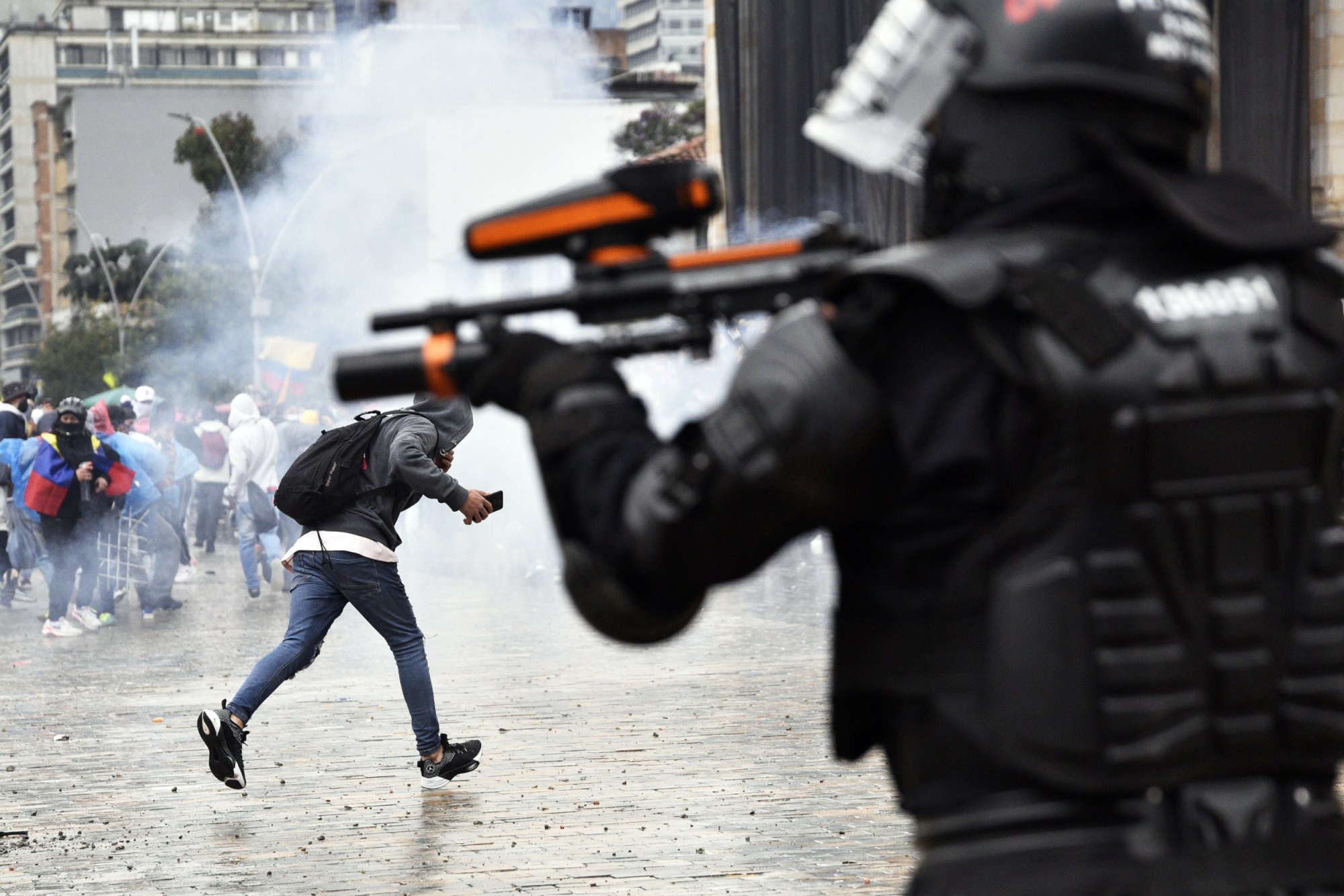In Colombia, death toll following protests mounts as unrest continues
Colombia entered its eighth day of national anti-government protests, with police firing tear gas at crowds in the capital, Bogota, after they attacked a police station.
There have been 24 confirmed deaths so far and around half have been linked to police violence; some independent groups say the death toll is as high as 37. Colombia's Defensoría del Pueblo, its public ombudsman, has stated that 89 people were missing following the protests. International organizations, like the European Union and the United Nations human rights office warned about the use of excessive force by authorities at the protests.
The demonstrations were ignited by a plan for tax-reform that has since been cancelled. But the protests continued and morphed into calls on the government to address growing poverty, inequality, and police violence.
The tax hike that President Iván Duque insisted is necessary to fix the country’s economy has been scrapped and Duque said he would seek a new on. The Andean country’s economy fell by almost 7 percent last year because of the pandemic.
The pandemic-related lockdowns have aggravated Colombia’s inequality with 42.5 percent of the country’s population now living in poverty.
Duque has said his government will create “spaces” for civil society groups, political parties and the private sector to meet with government representative, but some groups say he failed to deliver on similar promises during protests in 2019.
In a video Wednesday, Duque repeated claims by other government officials about criminal organizations hiding among the protesters. “The extreme vandalism and the urban terrorism that we are observing is financed and articulated by narco-trafficking mafias,” he said.
Colombia, a strategic ally of the United States, has seen intense polarization as their presidential elections approach in May of next year. Socialist candidate and ex-guerrilla member, Gustavo Petro, is leading in recent polls.
Senior U.S. official Juan S. Gonzalez, who heads the National Security Council’s Western Hemisphere Affairs, struck a diplomatic tone Wednesday in a tweet. Gonzalez, who was born in Colombia, stated that “the right to peaceful protest is a fundamental freedom. Needless destruction is not. Violence that endangers lives is not. And proper observance of use of force standards is NOT negotiable.”
U.S. Senator Marco Rubio, R-Fla, took a swipe at Colombia’s leftists, echoing the Colombian government's claims, as the affinity among Colombia’s right wing and some in the U.S. Republican party appears to strengthen.
In a tweet Thursday, retweeted by former Colombian president Álvaro Uribe and conservative Colombian senator María Fernanda Cabal, Rubio wrote, “Behind much of the violence occurring in #Colombia this week is an orchestrated effort to destabilize a democratically elected government by left wing narco guerrilla movements & their international marxist allies.”
Before the U.S. 2020 elections, some conservative elected officials in Colombia endorsed U.S., including former President Donald Trump.
On Tuesday, the U.S. Department of State, in a statement about the situation in Colombia, said that “all over the world, citizens in democratic countries have the unquestionable right to protest peacefully. Violence and vandalism is an abuse of that right.”

